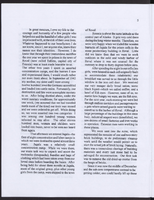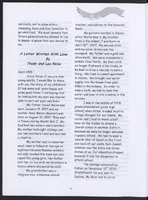Search the Special Collections and Archives Portal
Search Results
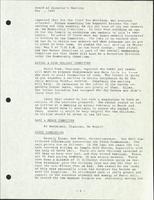
Minutes from Temple Beth Sholom Board of Directors meetings, June 1987 - May 1988 (1 of 2)
Date
1987 to 1988
Archival Collection
Description
Minutes from Temple Beth Sholom Board of Directors meetings, June 1987 - May 1988 (1 of 2)
Text
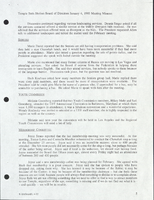
Minutes from Temple Beth Sholom Board of Directors meetings, January 1993 - June 1993
Date
1993
Archival Collection
Description
Meeting minutes include reports from committees of the board, correspondence, and balance sheets.
Text

Compilation of writings from the Holocaust Survivors' Group, circa 1998
Date
1988
Archival Collection
Description
Bound compilation of four issues of the Holocaust Survivors' Group essays and poems.
Text
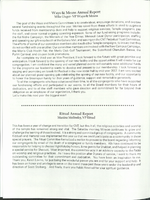
Annual report from Congregation Ner Tamid, 2006
Date
2006
Archival Collection
Description
Annual report from Congregation Ner Tamid, 2006
Text
Pagination
Refine my results
Content Type
Creator or Contributor
Subject
Archival Collection
Digital Project
Resource Type
Year
Material Type
Place
Language
Records Classification




